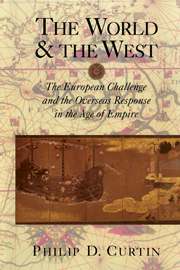3 - The Politics of Imperialism
Published online by Cambridge University Press: 05 June 2012
Summary
Historical discussions about the causes of imperialism during the past century have often centered on the materialist interpretations called Marxist, though that interpretation probably owes more to J. A. Hobson than to Karl Marx. Hobson's most important book, Imperialism: a Study, appeared in 1902 and was strongly influenced by the recent events of the Anglo-Boer War in South Africa. Hobson's central point was that the capitalist and industrial economy of Europe produced more funds for investment than the European economy could absorb, and that these surplus funds therefore tended to be diverted overseas in search of higher profits or higher interest rates in a less competitive market. European governments, anxious to protect funds their nationals invested overseas, were hence lured into the expansion of their overseas empires.
This theoretical discussion of the material roots of imperialism and the variants that have ensued over the course of the past century is akin to other debates about the relations between capitalism, industrialism, and imperialism, and it is a proper concern for historians of Europe. For these essays, however, it is more useful to be content with a more practical level, to be concerned with the actual policies various European governments said they were following at various times and the processes of decision making that lay behind them.
- Type
- Chapter
- Information
- The World and the WestThe European Challenge and the Overseas Response in the Age of Empire, pp. 38 - 52Publisher: Cambridge University PressPrint publication year: 2000



